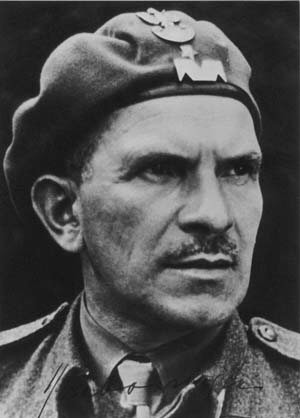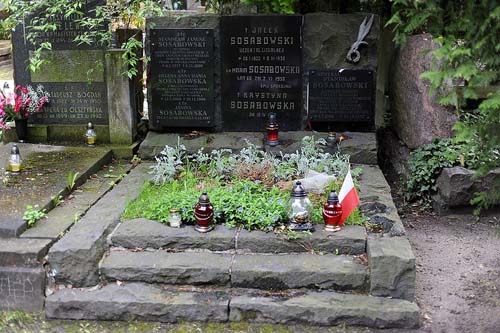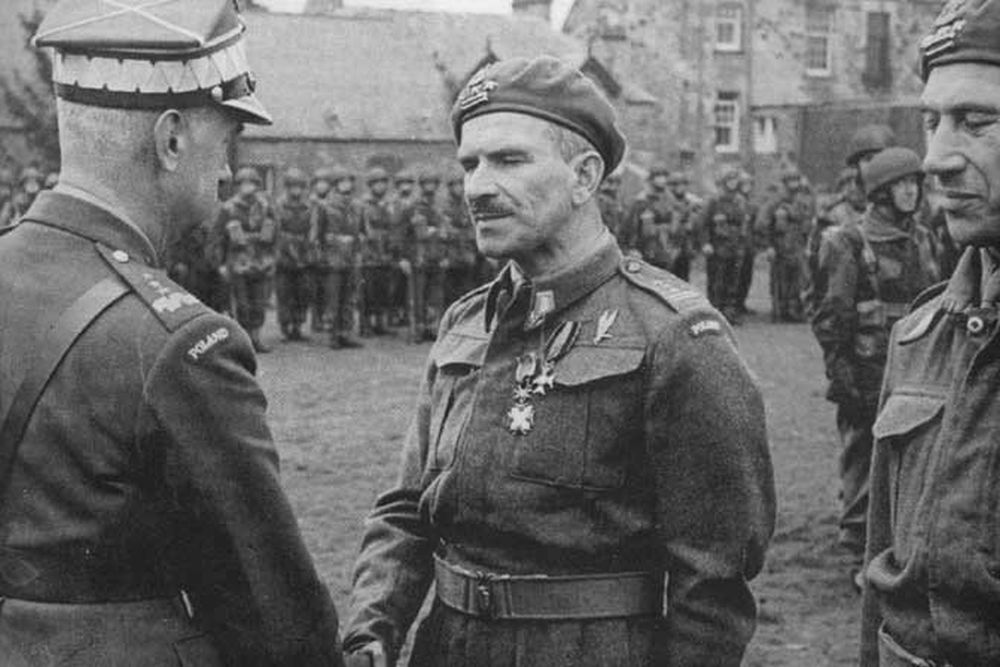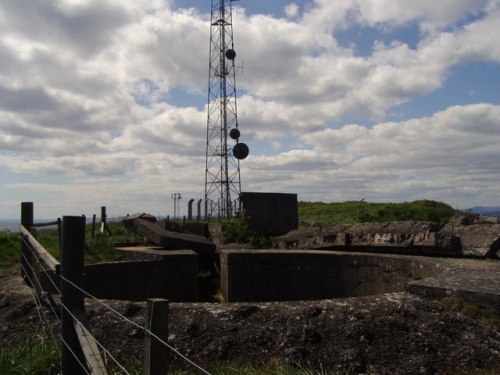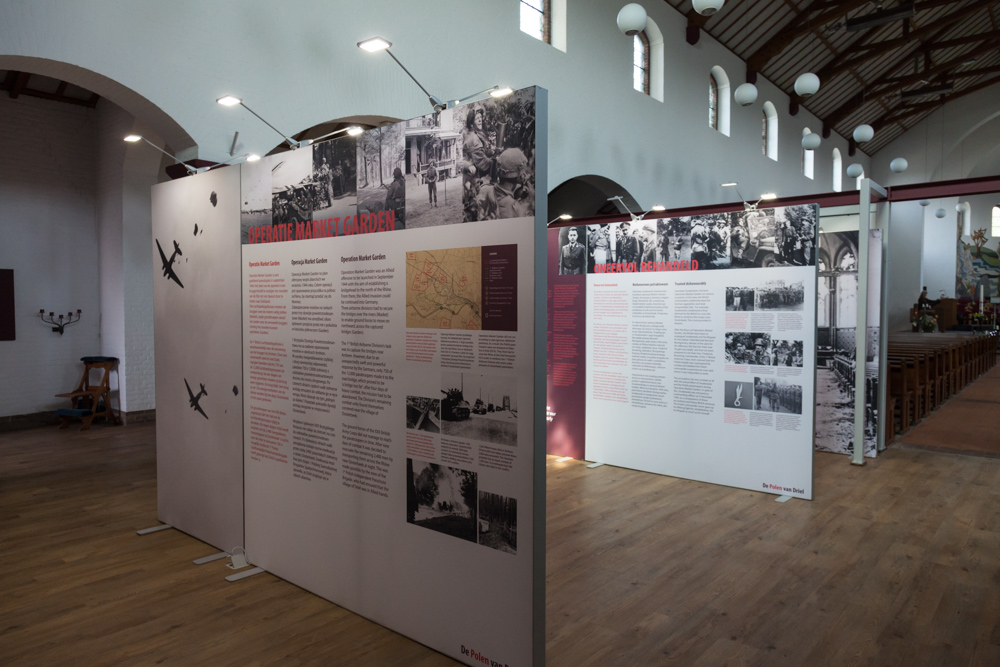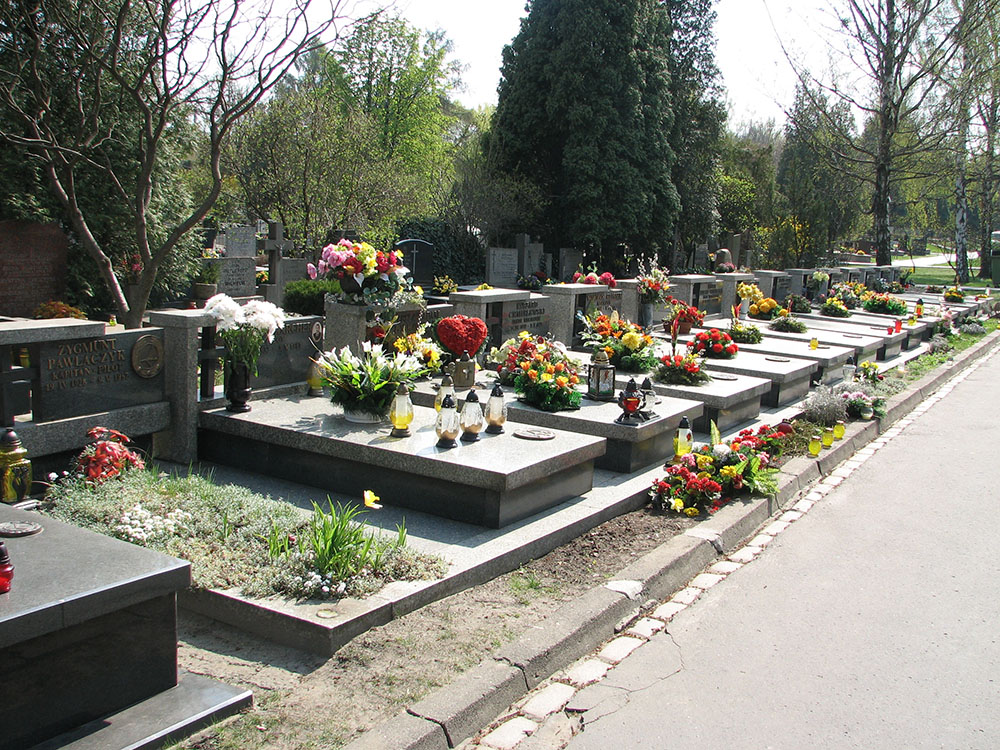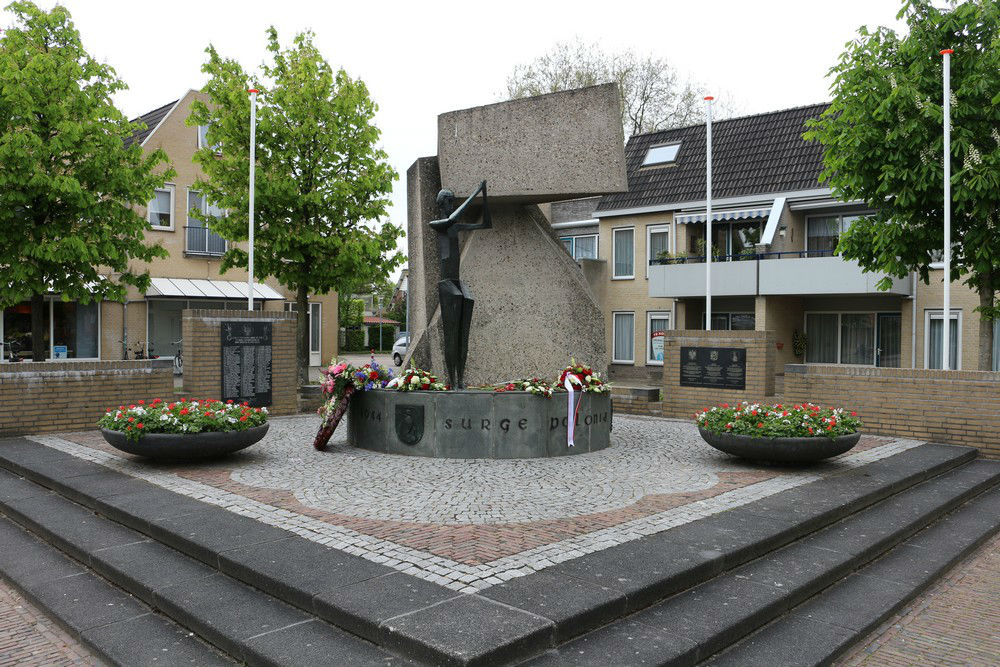Sosabowski, Stanislaw Franciszek
- Date of birth:
- May 8th, 1892 (Stanislawow, Polen)
- Date of death:
- September 25th, 1967 (Middlesex, Great Britain)
- Buried on:
- Cmentarz Wojskowy
Plot: A19. Row: 7. Grave: 10/11. - Nationality:
- Polish
Biography
Stanislaw Franciscek Sosabowski was born May 8th, 1892 in Stanislawow, a small town in Galicia. He grew up in a family of four children (apart from Stanislaw, his brother Andrzej en sisters Janina and Kazimiera). His father died as early as 1904. His mother's wages were insufficient to sustain the family and Stanislaw helped earning a little money with coaching other children in French and Mathematics. Yet he managed to pursue an education. In 1910 he graduated cum laude from the Gymnasium and eventually succeeded in finding a job as a bank employee. During this period, Stanislaw got involved in organizations which were to form the base for Polish indepedence later on.
He was drafted during World War I and served as a Corporal in 58th Imperial and Royal Infantry Regiment within the Imperial Hungarian-Austrian Army. He rapidly distuinguished himself as a soldier and rose to the rank of Sergeant. On June 15th, 1915 he was injured by shell fragments and was taken to Lublin hospital. In 1917, he was promoted to 2nd Lieutenant and was married to Maria Tokarska. November 1st, 1918 he joined the Polish Army. In 1919 he was posted to the Department of Military Affairs in Warsaw. November 9th, 1920 saw him promoted to the rank of Major.
Stanislaw Sosabowski served in the Officers school of the General Staff of the Polish Army, "Wyszsza Skola Wojskowa" in Warsaw from October 28th, 1922 onwards, a training course that was to produce many high ranking Polish officers. Following graduation, he was assigned to the General Staff as Staff Officer, tasked with the establishment of the Polish Army and its officer corps. March 28th, 1928 he was promoted to Lieutenant-colonel and given command of 75th Infantry Regiment in Chorzow and later in Rybnik. That same year, he was named deputy commander of 3rd Mountaineer Regiment, a Polish crack unit of Podhale in Bielsko-Biala.
In 1930 he served as an instructor and later on as dean of the General Staff College. After six years he wanted to return to operational duty again and was named commander of 9th Infantry Regiment within 3rd Infantry Division in Zamosc.
Janaury 1939, Sosabowski was promoted to Colonel and was put in command of 21st Infantry Regiment "Dzieci Warszawy" , the Children of Warsaw, one of the most prestigious units in the Polish Army.
During the German invasion of September 1939, Sosabowski's regiment was part of the Modlin Army. After the capitulation, Sosabowski was taken to Zyrardow POW camp. Security there was so poor that he could easily escape with his son Stanislaw. Initially, father and son joined the internal resistance in Poland. November 1939, Sosabowski contacted the Service for Polish Warfare (Sluzba Zwyciestwu Polski). He was the first senior officer who managed to escape to the West. December 22nd, 1940, he reported to the office of General Vladyslaw Sikorski in Paris. In January 1940, he received his first posting as deputy commander of the new Polish 1st Infantry Division; shortly after, he became deputy commander of the 4th Infantry Division. June 1940, he engaged German troops again, this time not in his own country but in France. After the fighting was over, Sosabowski orchestrated the evacuation of Polish troops from France. He managed to escape to England at the last moment aboard the steam vessel Abderpool along with 3200 men of his division. June 21st, 1940, he arrived in England and established the Polish 2nd Fusileer Brigade, which was disbanded by higher authority and then Sosabowski was instrumental in the establishment of the Polish 4th Cadrebrigade of Fusileers. The purpose of this brigade was to recruit and train Polish volunteers from the United States and Canada. In February 1941, the Polish Government in Exile decided to establish a Polish airborne unit. Sosabowski immediately transferred himself and his most loyal men to this unit.
Finally, in September 1944, it was Sosabowski's turn to prove himself and his men in battle. His Polish brigade was deployed in Operation Market Garden. After the battle, Sosabowski was among many who were blamed for the disaster. A report by General Browning utterly destroyed Sosabowski's reputation and described him as an incompetent and rebellious commander. December 9th, 1944, Sosabowski received a letter from the Polish President in exile, Vladislaw Raczkiewicz, relieving him of his command. The President made it clear that it was the result of British pressure. Obviously, Sosabowski did not accept this. He felt his honour had been tarnished and he requested an enquiry into the British reproof against his person. Even his own government did not support him on this. Janaury 1945, they had other, more pressing matters on their hands since a provisionary Polish government had been established by the Soviets in Lublin. Protesting the treatment of their commander, the men of the Polish Airborne brigade started a hunger strike on December 25th, but ended it themselves at Sosabowski's request. He resigned December 27th.
Sosabowski did not return to Poland and in 1948, he managed to have his family move to London. During the winter of 1947/48, Sosabowski was made to retire officially. Start working at the age of 57. He found a job as factory hand with the Electrical Assembly Plant CAV Electrics Acton.
Stanislaw Sosabowski died September 25th, 1967 from a heart disease in Hillingdon Hospital in Middlesex, UK. October 14th, 1967 he was entombed with military honours at the Powazki Military Cemetery in Warsaw, Poland.
Do you have more information about this person? Inform us!
- Period:
- First World War (1914-1918)
- Period:
- First World War (1914-1918)
- Rank:
- Pulkownik (Colonel)
- Unit:
- 9 Pułk Piechoty Legionów, Wojsko Polskie
- Awarded on:
- 1937
Version with Swords
- Period:
- Second World War (1939-1945)
- Rank:
- Pulkownik (Colonel)
- Unit:
- 21 Pułk Piechoty "Dzieci Warszawy", 8 Dywizja Piechoty, Armia "Modlin", Wojsko Polskie
- Awarded on:
- 1939
- Period:
- Second World War (1939-1945)
- Rank:
- Pulkownik (Colonel)
- Unit:
- 21 Pułk Piechoty "Dzieci Warszawy", 8 Dywizja Piechoty, Armia "Modlin", Wojsko Polskie
- Awarded on:
- 1939
- Period:
- Second World War (1939-1945)
- Rank:
- Pulkownik (Colonel)
- Unit:
- HQ, 1st Polish Independent Parachute Brigade, Polish Armed Forces in the West
- Awarded on:
- 1941
- Period:
- Second World War (1939-1945)
- Rank:
- Pulkownik (Colonel)
- Unit:
- HQ, 1st Polish Independent Parachute Brigade, Polish Armed Forces in the West
- Awarded on:
- 1943
- Period:
- Second World War (1939-1945)
- Rank:
- General Brygadi (Brigadier)
- Awarded on:
- 1945
- Period:
- Second World War (1939-1945)
- Rank:
- General Brygadi (Brigadier)
- Unit:
- HQ, 1st Polish Independent Parachute Brigade, Polish Armed Forces in the West
- Awarded on:
- 1988
Posthumously awarded
- Period:
- Second World War (1939-1945)
- Rank:
- General Brygadi (Brigadier)
- Unit:
- HQ, 1st Polish Independent Parachute Brigade, Polish Armed Forces in the West
- Awarded on:
- May 31st, 2006
- Awarded for:
- Operation Market Garden
He has distinguished himself by exceptionally couragous and tactful deeds in combat against the enemy as Commander of the Polish 1st Independent Parachute Brigade in the vicinity of Arnhem in the period from September 17 to 26, 1944, inspiring everyone serving under him. By his intrepidity and determined attitude in combat and his energetic performance on critical moments were of great importance for the tenacity with which his unit has endured in the execution of its alloted tasks.
Posthumously awarded
- Period:
- Second World War (1939-1945)
- Rank:
- General Brygadi (Brigadier)
- Awarded on:
- November 11th, 2018
Posthumously awarded
- Period:
- Second World War (1939-1945)
- Period:
- Second World War (1939-1945)
- Rank:
- General Brygadi (Brigadier)
- Unit:
- HQ, 1st Polish Independent Parachute Brigade, Polish Armed Forces in the West
- Period:
- Second World War (1939-1945)
- Rank:
- General Brygadi (Brigadier)
- Period:
- Second World War (1939-1945)
- Rank:
- General Brygadi (Brigadier)
Sources
- Photo 1: Public Domain
- - Cholewczynski G.F., Poles Apart, Sarpedon Publishers, 1993
- Cholewczynski G.F., De Polen van Driel, Uitgeverij Lunet, 1990
- Sosabowski S., Freely I served, Battery Press Inc, 1982
- The Battle of Arnhem Archive
- Poland in Exile
- Sosabowski, a family history
- Nederlandse onderscheidingen aan Poolse militairen voor de Tweede Wereldoorlog
- Ordery Orła Białego przyznane pośmiertnie 25 wybitnym Polakom



















